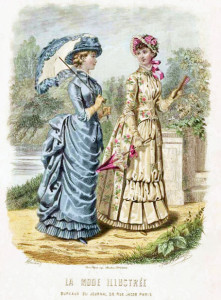Monday’s Mishmash: Historic vs Historical
We all love historic costuming. . . . Or do we?
I always thought the words “historic” and “historical” were interchangeable, but as a writer, I should have known better! Here’s what the words actually mean.
A momentous event. Something that will go down in history.
Relating to the past, whether it’s noteworthy or not.
So, as you can see, the phrase we want to use is “historical costuming.”
While we’re on the topic, what about A vs An? A lot of people write, “An historical costume,” or “An historic occasion.” But is this correct?
Technically, it depends on how you pronounce “history.” Of course, you don’t usually pronounce words aloud when you’re reading online, which is where some of the confusion comes in.
The rule for A vs An is simple: Regardless of how it’s spelled, if the word sounds like it begins with a consonant, use “a.” If it sounds like it begins with a vowel, use “an.”
It doesn’t matter whether the word starts with a vowel or not—it’s how it’s pronounced that determines the article used. (Somehow, I didn’t realize this until recently, so my older articles and blog posts may contain grammatical errors. Oops!)
In the United States, most people don’t drop their H’s, so “historical” and “historic” are pronounced “his-torical” and “his-toric.” Therefore, we should use “a” before these words. In other countries, however, people often use silent H’s, which means these words are pronounced “ist-orical,” and “ist-oric.” In these cases, “an” would be more appropriate, since the words sound like they begin with a vowel.
~~*~~
And that’s your grammar lesson for the day!


2 Responses to Historic vs Historical